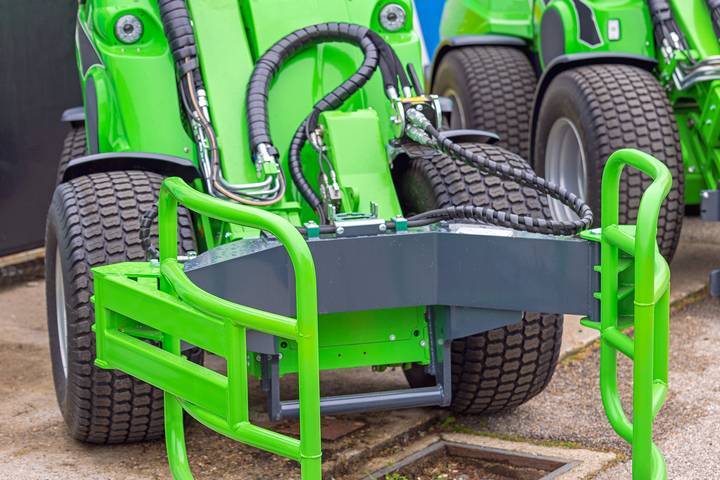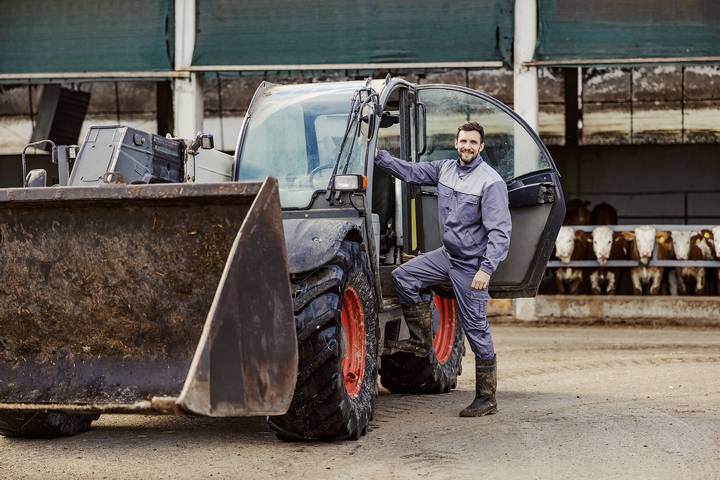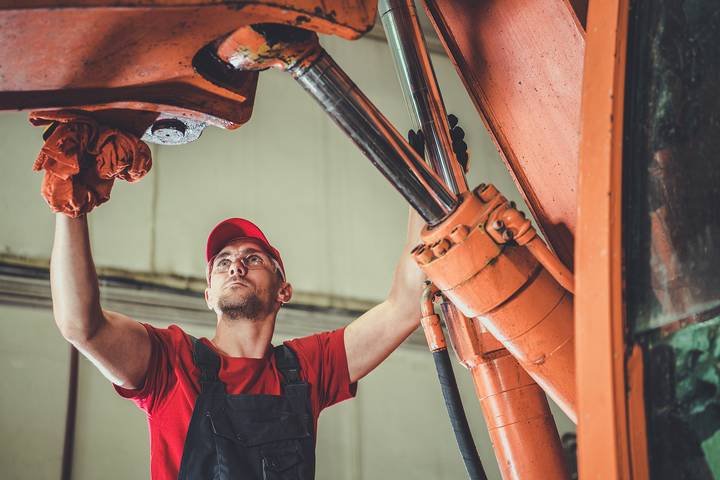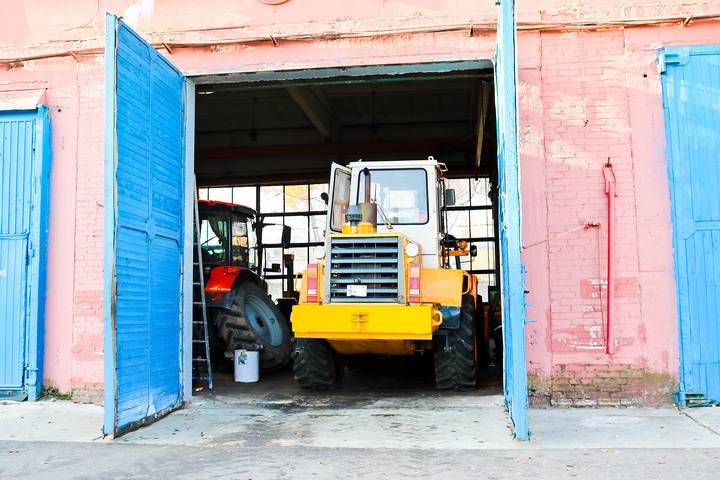In the early days of farming, everything was done by hand, and it was backbreaking work, sun up to sun down. Today, we have the machinery to lend a hand, increasing production and decreasing the farmers’ physical demands.
A farmer’s agricultural and construction equipment is their lifeblood, so keeping everything running in peak condition is essential. With that in mind, here are some great farm equipment maintenance tips for the busy season and the off-season to take care of your machinery.
Tip #1: Organize Your Documents

Like office documents you compile, any paperwork relating to your farm equipment should be organized neatly and readily available. This helps with maintenance when you have records of everything you do and should include:
- Owners manuals
- Dealership information
- Warranties
- Service records
- Receipts
- Work orders
- Maintenance checklists
You can keep this material in a binder so you can easily carry it out to your storage barn when doing maintenance and be able to refer to it as needed. The organization makes your maintenance program run smoother and faster.
Tip #2: Keep Your Equipment Clean

On an active farm, you may be working long hours, and the last thing you want to do at the end of the day is wash up your equipment. It will get dirty tomorrow, so what’s the big deal?
Get into the habit of keeping all your farming equipment clean. This prevents a large buildup of dirt and debris and allows you to see anything bent, broken or worn.
Have a broom and hose near where you park your tractor and give it a once-over every day or two. It takes very little time and shows that you care for your equipment.
Tip #3: Make Regular Inspections

Depending on the size of the farm, you could have anywhere from one tractor to a fleet of them, spread around 1000s of acres. To prevent machinery from breaking down, you should have regular inspections to catch any issues like:
- Any oil or hydraulic fluid leaks
- Corroded battery terminals
- Headlights
- Warning lights
- Tires and Wheels
- Filters
- Belts and fans
- Worn attachments
By checking all around your machinery before you use it, you can catch small problems if they exist and then remedy them before they get worse.
Tip #4: Inspect Attachement Connections

Hitches are parts attached to the chassis of your tractor and other farm vehicles and serve as a connection point for your other equipment. Couplers and drawbars make solid connections and different styles depending on your equipment.
You may be attaching:
- Plows
- Harrows
- Spreaders
- Seeders
- Harvesters
- Balers
- Cultivators
- Rakes
- Wagons
- Sprayers
- Mowers
These all have connections that must be secure, so check them closely when attaching them, make sure they are free of debris and securely fasten to your tractor every time.
Tip #5: Long Term Storage

When it’s the end of the season, and you plan to store your equipment long-term, you should take extra time for all of the above. This will be a complete maintenance run-through to fully prepare your machines for the winter ahead. Beyond the above maintenance tips, you should remove the battery and keep it in a climate-controlled room so it isn’t exposed to freezing temperatures. Add a fuel stabilizer to saturate the lines to protect them over the winter. To protect your tires from flat spots, put them on a stand or blocks to provide support.
These are the farm equipment maintenance tips you should implement into your operation. Your equipment is a vital part of your operation, and proper maintenance will assist in the success of your farming for years to come.

